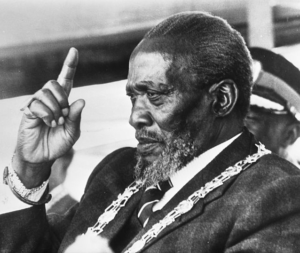
Jomo Kenyatta CGH (c. 1897 – 22 August 1978) was a Kenyan anti-colonial activist and politician who governed Kenya as its Prime Minister from 1963 to 1964 and then as its first President from 1964 to his death in 1978. He was the country’s first president and played a significant role in the transformation of Kenya from a colony of the British Empire into an independent republic.
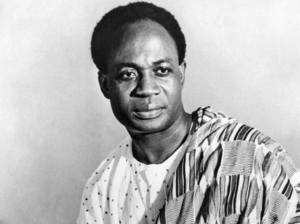
Francis Kwame Nkrumah (21 September 1909 – 27 April 1972) was a Ghanaian politician, political theorist, and revolutionary. He served as Prime Minister of the Gold Coast from 1952 until 1957, when it gained independence from Britain.[1] He was then the first Prime Minister and then the President of Ghana, from 1957 until 1966. An influential advocate of Pan-Africanism, Nkrumah was a founding member of the Organization of African Unity and winner of the Lenin Peace Prize from the Soviet Union in 1962.
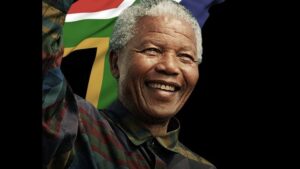
Nelson Rolihlahla Mandela; born Rolihlahla Mandela; 18 July 1918 – 5 December 2013) was a South African anti-apartheid activist, politician, and statesman who served as the first president of South Africa from 1994 to 1999. He was the country’s first black head of state and the first elected in a fully representative democratic election. His government focused on dismantling the legacy of apartheid by fostering racial reconciliation. Ideologically an African nationalist and socialist, he served as the president of the African National Congress (ANC) party from 1991 to 1997.
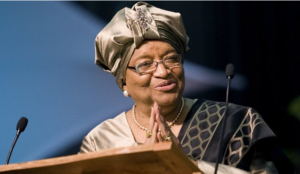
Ellen Eugenia Johnson Sirleaf (née Johnson; born 29 October 1938) is a Liberian politician who served as the 24th president of Liberia from 2006 to 2018. Johnson Sirleaf was the first elected female head of state in Africa.
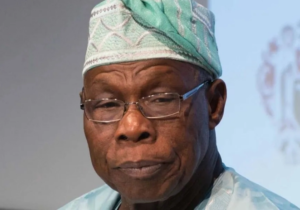
Olusegun Obasanjo (born March 5, 1937, Abeokuta, Nigeria) is a Nigerian general, statesman, and diplomat, who was the first military ruler in Africa to hand over power to a civilian government. He served as Nigeria’s military ruler (1976–79) and, as a civilian, as president (1999–2007).
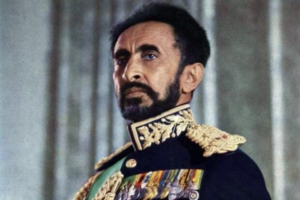
Haile Selassie I; born Tafari Makonnen; 23 July 1892 – 27 August 1975) was Emperor of Ethiopia from 1930 to 1974. He rose to power as Regent Plenipotentiary of Ethiopia (Enderase) for Empress Zewditu from 1916 until 1930. Haile Selassie is widely considered a defining figure in modern Ethiopian history, and the major figure of Rastafari, a religious movement in Jamaica that emerged shortly after he became emperor in the 1930s.
